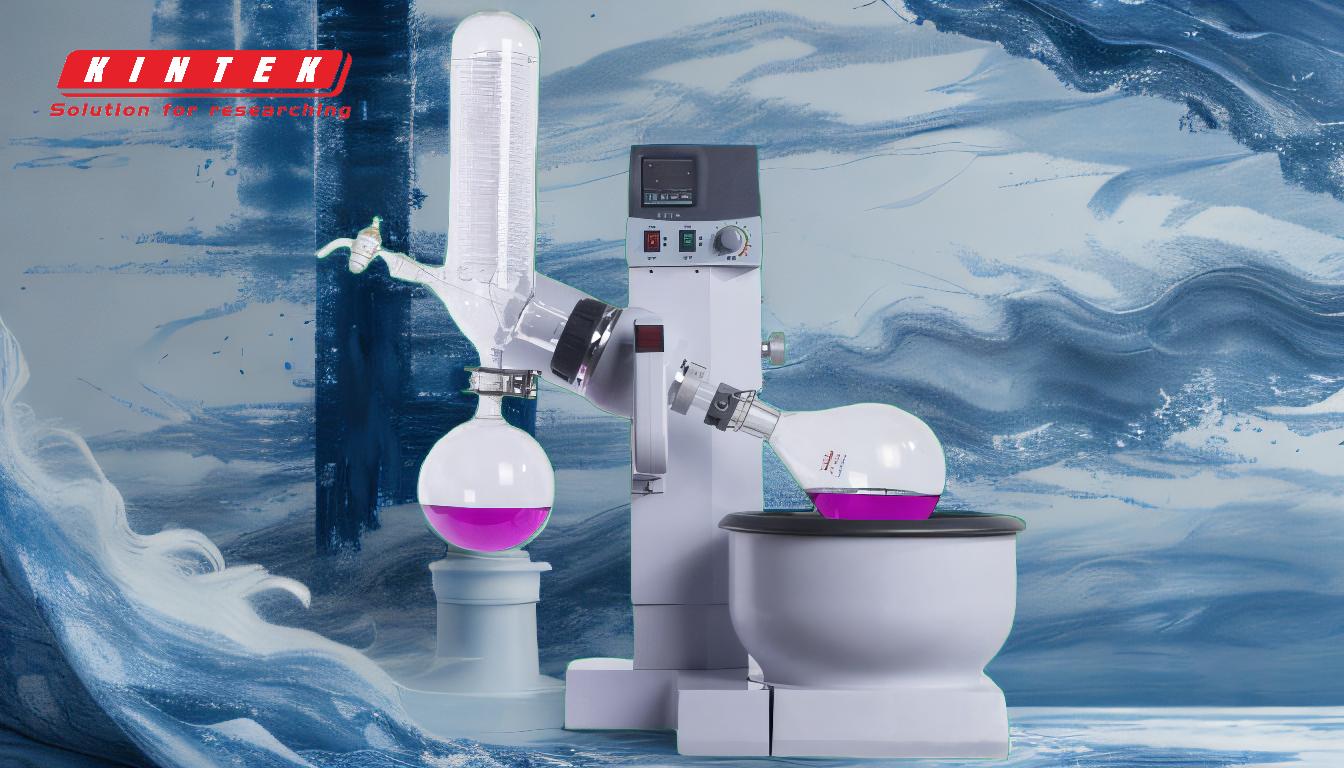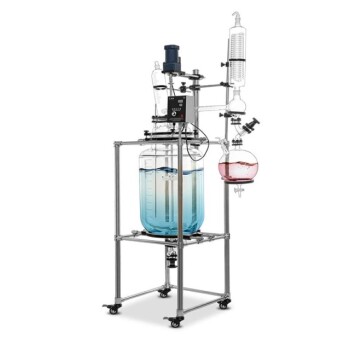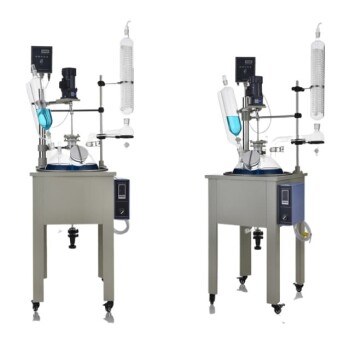A rotary evaporator, often referred to as a "rotovap," is a versatile piece of laboratory equipment widely used across various industries, including pharmaceuticals, chemistry, and research. Its primary function is to efficiently and gently remove solvents from samples through evaporation and condensation. This process is crucial for applications such as concentration, drying, distillation, and extraction. Rotary evaporators are particularly valued for their ability to handle heat-sensitive compounds, recover valuable solvents, and minimize waste. Their applications span from synthesizing and purifying compounds in the chemical industry to extracting natural products like CBD in pharmaceuticals. Below, we explore the key applications of rotary evaporators in detail.
Key Points Explained:

-
Solvent Removal and Concentration
- Rotary evaporators are primarily used to remove volatile solvents from liquid mixtures, leaving behind a concentrated sample.
- This is essential in pharmaceutical and chemical labs where precise concentrations of active compounds are required.
- The process is gentle, making it suitable for heat-sensitive materials that could degrade under harsh conditions.
-
Distillation of Mixed Solvents
- Rotary evaporators can separate solvents with different boiling points, a process known as fractional distillation.
- This is particularly useful in chemical synthesis and solvent recycling, where pure solvents are recovered for reuse.
- The efficiency of the rotovap ensures minimal solvent loss and reduces environmental impact.
-
Drying of Samples
- Rotary evaporators are used to dry samples by removing residual solvents.
- This is critical in pharmaceutical manufacturing, where dry powders or crystals are often the desired end product.
- The gentle evaporation process prevents degradation of sensitive compounds.
-
Extraction of Natural Compounds
- In the pharmaceutical and food industries, rotary evaporators are used to extract natural compounds such as CBD, essential oils, and flavors.
- The process involves dissolving the target compound in a solvent, followed by evaporation to isolate the pure extract.
- This method is preferred for its ability to preserve the integrity of delicate compounds.
-
Chemical Synthesis and Purification
- Rotary evaporators play a key role in chemical synthesis by concentrating reaction mixtures and isolating pure products.
- They are also used for re-crystallization, a process that purifies compounds by dissolving and then slowly evaporating the solvent.
- This ensures high-purity products, which are essential for research and industrial applications.
-
Preparation for Freeze-Drying
- Rotary evaporators are often used to prepare samples for freeze-drying (lyophilization) by removing bulk solvents.
- This step reduces the time and energy required for the subsequent freeze-drying process.
- It is commonly used in pharmaceutical and biological research for preserving sensitive materials.
-
Recycling of Solvents
- In the chemical industry, rotary evaporators are used to recover and recycle solvents from waste streams.
- This not only reduces costs but also minimizes environmental waste.
- The recovered solvents can be reused in subsequent reactions, promoting sustainable laboratory practices.
-
Analytical and Processing Procedures
- Rotary evaporators are used in analytical labs to prepare samples for testing by concentrating or drying them.
- They are also employed in processing procedures, such as mixing difficult-to-combine ingredients, where traditional mixing methods are ineffective.
- This versatility makes them indispensable in both research and quality control settings.
-
Handling Heat-Sensitive Materials
- One of the standout features of rotary evaporators is their ability to operate under reduced pressure, which lowers the boiling point of solvents.
- This makes them ideal for handling heat-sensitive compounds that would otherwise degrade at higher temperatures.
- Applications include the synthesis of pharmaceuticals, natural product extraction, and polymer research.
-
Versatility Across Industries
- Rotary evaporators are used in a wide range of industries, including pharmaceuticals, chemistry, food and beverage, and environmental science.
- Their ability to perform multiple functions (e.g., distillation, concentration, drying) makes them a cost-effective and space-saving solution for labs.
- Their adaptability to different scales of operation (from small research labs to large industrial setups) further enhances their utility.
In summary, rotary evaporators are indispensable tools in modern laboratories, offering a wide range of applications that streamline processes, improve efficiency, and ensure the integrity of sensitive materials. Their ability to handle diverse tasks, from solvent removal to natural product extraction, makes them a cornerstone of scientific research and industrial production.
Summary Table:
| Application | Key Benefits |
|---|---|
| Solvent Removal and Concentration | Gentle process for heat-sensitive materials; essential for precise concentration. |
| Distillation of Mixed Solvents | Separates solvents by boiling points; ideal for solvent recycling and reuse. |
| Drying of Samples | Removes residual solvents; critical for pharmaceutical manufacturing. |
| Extraction of Natural Compounds | Preserves delicate compounds like CBD and essential oils. |
| Chemical Synthesis and Purification | Ensures high-purity products for research and industry. |
| Preparation for Freeze-Drying | Reduces time and energy for lyophilization. |
| Recycling of Solvents | Minimizes waste and promotes sustainable lab practices. |
| Analytical and Processing Procedures | Prepares samples for testing and handles difficult-to-mix ingredients. |
| Handling Heat-Sensitive Materials | Operates under reduced pressure to prevent degradation. |
| Versatility Across Industries | Adaptable for pharmaceuticals, chemistry, food, and environmental science. |
Enhance your lab's efficiency with a rotary evaporator—contact us today to learn more!














